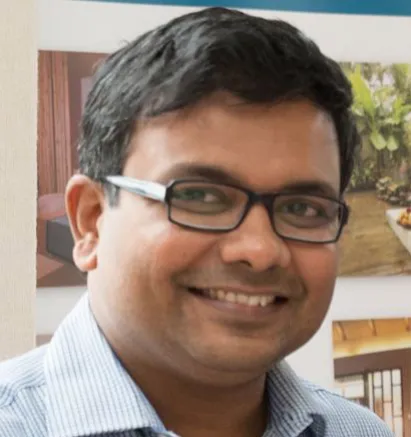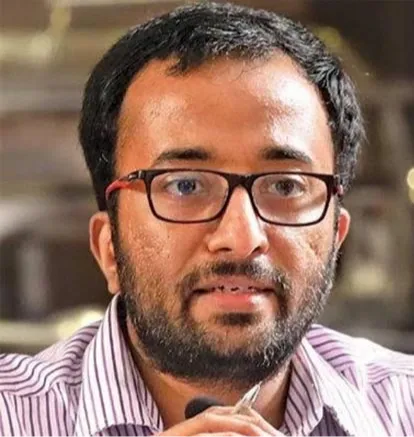
Introduction
As the uncertainties in globalisation and global health governance increase, the need for an active role and intervention in health diplomacy becomes vital to protect and promote global interests. Global health diplomacy represents an important competency in an evolving international platform for people-centric negotiations on critical global policy issues such as foreign policy, intellectual property, development, national security, and trade agreements. This calls for new skills development among the diplomats to negotiate and emphasise health in the face of other conflicting interests. With COVID-19, climate change and conflict impacting health and security, it is becoming clear that matters or concerns which were once confined to national policy are now issues of global impact and concern.
The importance of collective action and diplomatic dialogue on health was emphasised by Oslo’s Ministerial Declaration of 2007 and the United Nations General Assembly (UNGA) resolutions of 2008 and 2012, recognising the inter-dependence of health and foreign policy to achieve health outcomes and advising the countries to examine the key elements in foreign policies that would have an impact on health. During the 75th UNGA in 2020, a draft resolution titled “Global Health and Foreign Policy: Strengthening Health System Resilience Through Affordable Health Care for All” re-emphasised the need for the amalgamation of health in foreign policy discussions. The WHO Regional Office of Eastern Mediterranean has also reiterated the importance and relevance of health diplomacy as a competency across different nations.
Engaging in global health diplomacy enables nations to unite in international forums, advocating for crucial global health issues and building trust, goodwill, and stronger diplomatic relationships. Countries such as the United States (US), China, Japan, the United Kingdom (UK), Australia, Turkey, Brazil, Canada, Switzerland, and other European countries have practised health diplomacy to address global health concerns and foster international collaboration. For instance, the US has launched the Bureau of Global Health Security and Diplomacy to promote cooperation at the national, regional, and multilateral levels to strengthen global health security. In Australia, the Department of Foreign Affairs and Trade (DFAT) is a key entity that is involved in health diplomacy which has a Global Health Division that comprises of an Indo-Pacific Centre for Health Security. Meanwhile, China has been practising health diplomacy for several decades systematically and has recognised the importance of non-traditional security threats following the SARS-CoV-1 outbreak in 2002. Its Forum of Chinese-African Cooperation (FOCAC), the Belt and Road Initiative (BRI), the Health Silk Road (HSR) initiative, signing of the Memorandum of Understanding (MoU) with the World Health Organization (WHO) on Health Sector Cooperation, and the ‘Healthy China 2030’ campaign has enhanced its influence in global health governance and reform the international order by using its soft power in health diplomacy.
While these health diplomacy initiatives indicate the progress in the integration of health in foreign policy, the developed countries have been prominent due to their economic, social, and political will towards it. With the headquarters of the global health governing institutions having more proximity to the global north than the south, the voices of developing countries and LMICs are not heard strongly. For instance, during the COVID-19 pandemic, the issues of access to medicines, vaccines, and diagnostics were influenced by statist policies of developed nations, import-export restrictions, economic policies, geopolitical conflicts, and trade-related intellectual property rights. Thus, emerging economies like India with its multi-alignment foreign policy need to aim for leadership positions in global health diplomacy for a more equitable and holistic approach to dealing with future crises.
Health diplomacy initiatives of India
The increasing geopolitical relevance for India to indulge in global health diplomacy comes at a time when it can leverage its strengths in digital public infrastructure (CoWIN), supply chain management, pharmaceutical sector (‘pharmacy of the world’) that produces affordable medicines and vaccines, medical tourism, AYUSH, Global Centre for Traditional Medicine, teleconsultations, disaster management, and others. By leveraging these strengths, India can deepen international ties, influence global health policies, and champion health equity.
Its strategic geographical location in the Indo-Pacific region which includes 38 countries, 64 percent of the world’s population and 62 percent of global GDP, makes India an important geopolitical actor in its neighbourhood. For instance, during the pandemic, India as a part of the QUAD Vaccine Partnership and Vaccine Experts Group took the role of bulk manufacturing of the vaccines, while other partners focused on the last-mile delivery of vaccines and providing funding. Additionally, the Sagar Amrut initiative launched by India for specific training and capacity-building needs of the Pacific Island Countries can contribute to the development of the region.
India’s medical tourism increased by 110 percent between 2019 and 2022 with the majority influx from Afghanistan, Pakistan, Bangladesh and Maldives among the neighbouring countries. During the recent COVID-19 pandemic, India was among the first countries to announce a need for collective action in the region and initiated a COVID-19 Emergency Funds contribution of 10 million USD for the South Asian Association for Regional Cooperation (SAARC). The Indian military doctorswere sent to Nepal, Maldives, and Kuwait to assist in creating a plan of action to restrict the spread of COVID-19.
The Vaccine Maitri initiative and Neighbourhood First Policy were prominent in the discussions as India announced the roll-out of its COVID-19 vaccines to the neighbouring countries with Maldives and Bhutan receiving 100,000 and 150,000 vaccine doses respectively, followed by Sri Lanka, Nepal, Myanmar, and Bangladesh with 500 thousand, 1 million, 1.5 million, and 2 million doses respectively. This was also to tackle the geopolitical and geoeconomic influence of China in the region, by providing approximately one-fourth of India’s total vaccine supplies to countries in South Asia. Additionally, 25 African countries were provided with medicines and healthcare assistance through medical and vaccine diplomacy initiatives.
India’s efforts at the global level were recognized with its nine-point reform plan to the WHO with an emphasis on international health regulations in the aftermath of the recent pandemic.
India’s efforts at the global level were recognized with its nine-point reform plan to the WHO with an emphasis on international health regulations in the aftermath of the recent pandemic. Along with South Africa, India was also a voice for the Trade-Related Aspects of Intellectual Property Rights (TRIPS) waiver for certain provisions for the prevention, containment, and treatment of COVID-19. Additionally, India produces considerable human capital for health, such as 78,000 new doctors annually and is the second most common nationality in the United Kingdom National Health Service, and the US’s American Association of Physicians of Indian Origin with 80,000 members of Indian origin.
The G20 presidency of India in 2023 is pivotal for the country’s presence and image as a leader in global health governance.
The G20 presidency of India in 2023 is pivotal for the country’s presence and image as a leader in global health governance. Aligned with its philosophy of Vasudhaiva Kutumbakam (One Earth, One Family, One Future), the Indian government has shared its set of open APIs and e-governance tools of the India Stack with the world. It also offered the Co-WIN platform as a digital public good to any interested country and to WHO through WHO’s C-TAP initiative. More than 50 countries have shown interest in the Co-WIN platform including Canada, Mexico, and Nigeria, among others. India has taken the responsibility of the global south by resonating their concern at the G20 platform with health also being an important concern for the region. During the Voice of the Global South Summit, India launched the ‘Arogya Maitri’ initiative to promote India’s capability as a first responder during a natural disaster in developing countries by providing medical and necessary supplies. Building on the success of the first summit, DAKSHIN—Development And Knowledge Sharing Initiative – Global South Centre of Excellence, was launched during the second Voice of the Global South Summit to strengthen cooperation among the countries of the Global South.
Way forward
With the stakes getting higher for India to become a global leader in health governance it becomes vital to address the potential challenges of intellectual property rights issues, data sharing, and protection, strengthening health and regulatory systems, improving surveillance mechanisms, ensuring safe and effective healthcare products, and navigating through geopolitical turmoil. To address these concerns, it is imperative to establish a dedicated wing for health diplomacy by the Government of India (GoI). Leveraging the strengths of the Ministry of External Affairs (MEA) in international negotiations concerning global issues, it would be able to facilitate health diplomacy initiatives in close coordination with other functionaries and ministries at the national and international levels.
Hence, starting a health diplomacy wing, promoting capacity building, and collaborating with multiple stakeholders could be a strategic starting point in creating future-ready Indian health diplomats.
For the effective implementation and functioning of the health diplomacy wing, there is a need for institutionalisation of the wing at the national level, by establishing clear objectives, structure, processes, coordination mechanisms, and capacity-building programs in health diplomacy for health professionals and diplomats. Incorporation of health diplomacy in the existing training institutions for diplomats and other professionals could add value to position India at the forefront of global health diplomacy. This initiative could be further strengthened through strategic cooperation among academia, government, civil society organisations, and industries. Hence, starting a health diplomacy wing, promoting capacity building, and collaborating with multiple stakeholders could be a strategic starting point in creating future-ready Indian health diplomats.
Sanjay Pattanshetty is Head of the Department of Global Health Governance Prasanna School of Public Health Manipal Academy of Higher Education (MAHE).
Aniruddha Inamdar is a Research Fellow at the Centre for Health Diplomacy Prasanna School of Public Health.
Oommen C. Kurian is Senior Fellow and Head of Health Initiative at Observer Research Foundation
Helmut Brand is the founding director of Prasanna School of Public Health Manipal Academy of Higher Education (MAHE) Manipal Karnataka India.
The views expressed above belong to the author(s). ORF research and analyses now available on Telegram! Click here to access our curated content — blogs, longforms and interviews.




 PREV
PREV





